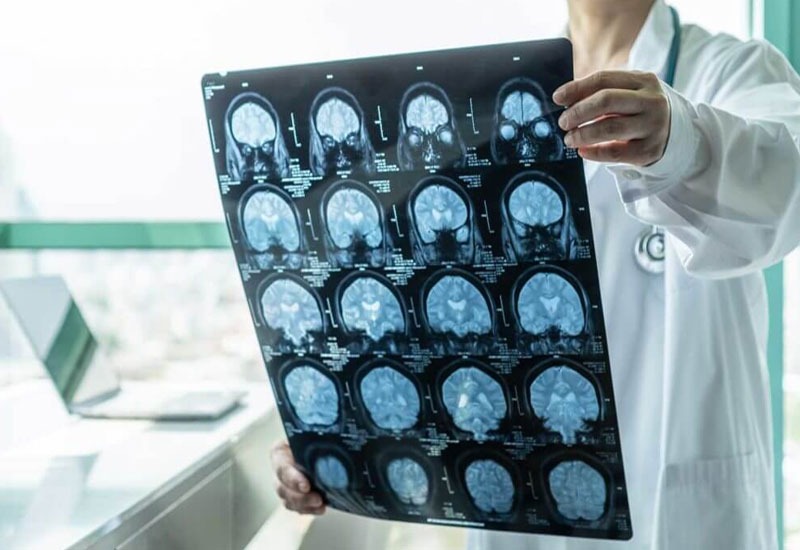Disorders of the nervous system are diagnosed and treated by any best neurologist doctor in Dubai. Your nervous system is divided into two parts: the peripheral nervous system, which consists of the nervous systems in the rest of your body, and the central nervous system, which is made up of the spinal cord and brain.
Other ailments that neurologists treat include:
- Damage to the cognitive system and spinal cord
- A headache
- Pain
- Multiple sclerosis
- Tremors
- Disorders of speech and language
- The mind and peripheral nerve system
- Convulsions
- Weakness in muscles
While both neurologists and neurosurgeons specialize in neurology, neurologists do not perform surgery. Neurosurgeons do just that. These two medical specialties frequently collaborate, especially when caring for patients with intricate neurological disorders. If you suffer from a neurological condition, you may see a neurologist as your primary care physician. Alternatively, your neurologist may identify your issue and then collaborate with your primary care physician. The best neurologist doctor in Dubai will direct you to an experienced neurosurgeon if they think surgery might be necessary, but following the procedure, the patient typically returns to the neurologist for ongoing care.
Neurologists and neuroscientists are not the same. While they do not work in clinical settings, neuroscientists study and research the nervous system’s physiology, development, and function and how to use this information to treat disorders of the nervous system. A neurologist Dr. Arun Kumar Sharma have to be a medical professional and perform clinical diagnosis and treatment, which is how they differ from neuroscientists. Although they typically hold a doctorate in neuroscience, neuroscientists might or might not have a medical degree.
With all the tests, what could a neurologist diagnose?
Your neurologist Dr. Arun Kumar Sharma might be able to determine the reason behind your neurological signs and recommend the best course of action. At your visit with the neurologist, you may be given a lot of details on how to cope with your symptoms in along with a physical examination and tests. Having a friend or relative accompany you can be beneficial. The individual you bring can assist with taking notes, asking questions, and listening.
Your neurological symptoms might not always be able to be identified by the tests. Test results may show no abnormalities, but some people may have “functional neurological symptoms” like pain, exhaustion, limb numbness and weakness, tremors, problems with movement, or blackouts. Symptoms that cannot be attributed to the existence of any disease or damage to the nerves are referred to as functional neurological symptoms.
What Is the Reaction of Neurologists to Functional Symptoms?
As much as one-third of outpatients in neurology may experience symptoms that cannot be attributed to a specific neurological condition. After conducting additional clinical tests to evaluate functional symptoms, a skilled neurologist will typically thoroughly explain the diagnosis to the patient.
The neurologist may recommend the following treatments to address functional symptoms:
- Physiotherapy
- Distraction strategies and graded activities
- Cognitive behavioral treatment
- Occupational therapy
Because it can occasionally be very challenging to make an accurate diagnosis in patients with functional symptoms, neurologists may be unsure of the best course of action. However, the patient may experience persistent, distressing, and incapacitating functional symptoms that require referral to doctors with different specialties.
On your initial visit, what might a neurologist do?
To ascertain the cause of your symptoms, the neurologist will review your medical history, perform a clinical examination, and recommend urine, blood, and neurodiagnostic tests during your initial visit. Depending on the test outcomes, the neurologist like Dr. Arun Kumar Sharma will recommend medication, physical and/or vocational therapy, or, in the event that surgery is required, involve you to a neurosurgeon.
If you have had any prior procedures or tests that are pertinent to your condition, bring the documentation with you. It can be helpful to write down your symptoms and worries before your neurologist appointment so you don’t forget to ask questions or share any information.
For what reason am I visiting a neurologist?
Nerve-related symptoms like tingling, numbing, and burning pain, persistent headaches, seizures or power outages, vertigo, muscle weakness, issues with touch, sight, hearing, taste, and smell, forgetfulness, speech or language problems, or sleep problems are all reasons to see a neurologist. Since many diseases share many symptoms, you should see your primary care physician before seeing the best neurologist doctor in Dubai. They can help you find the right experts and treatment.










